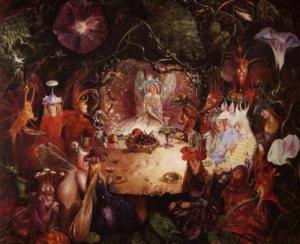A Knight of the White Cross: A Tale of the Siege of Rhodes
Nonfiction, Religion & Spirituality, New Age, History, Fiction & Literature| Author: | George Alfred Henty | ISBN: | 9781465600493 |
| Publisher: | Library of Alexandria | Publication: | March 8, 2015 |
| Imprint: | Language: | English |
| Author: | George Alfred Henty |
| ISBN: | 9781465600493 |
| Publisher: | Library of Alexandria |
| Publication: | March 8, 2015 |
| Imprint: | |
| Language: | English |
The order of the Knights of St. John, which for some centuries played a very important part in the great struggle between Christianity and Mahomedanism, was, at its origin, a semi-religious body, its members being, like other monks, bound by vows of obedience, chastity, and poverty, and pledged to minister to the wants of the pilgrims who flocked to the Holy Places, to receive them at their great Hospital—or guest house—at Jerusalem, dedicated to St. John the Baptist, and to defend them on their passage to and from the sea, against attack by Moslems. In a comparatively short time the constitution of the order was changed, and the Knights Hospitallers became, like the Templars, a great military Order pledged to defend the Holy Sepulchre, and to war everywhere against the Moslems. The Hospitallers bore a leading share in the struggle which terminated in the triumph of the Moslems, and the capture by them of Jerusalem. The Knights of St. John then established themselves at Acre, but after a valiant defence of that fortress, removed to Crete, and shortly afterwards to Rhodes. There they fortified the town, and withstood two terrible sieges by the Turks. At the end of the second they obtained honourable terms from Sultan Solyman, and retiring to Malta established themselves there in an even stronger fortress than that of Rhodes, and repulsed all the efforts of the Turks to dispossess them. The Order was the great bulwark of Christendom against the invasion of the Turks, and the tale of their long struggle is one of absorbing interest, and of the many eventful episodes none is more full of incident and excitement than the first siege of Rhodes, which I have chosen for the subject of my story.
The order of the Knights of St. John, which for some centuries played a very important part in the great struggle between Christianity and Mahomedanism, was, at its origin, a semi-religious body, its members being, like other monks, bound by vows of obedience, chastity, and poverty, and pledged to minister to the wants of the pilgrims who flocked to the Holy Places, to receive them at their great Hospital—or guest house—at Jerusalem, dedicated to St. John the Baptist, and to defend them on their passage to and from the sea, against attack by Moslems. In a comparatively short time the constitution of the order was changed, and the Knights Hospitallers became, like the Templars, a great military Order pledged to defend the Holy Sepulchre, and to war everywhere against the Moslems. The Hospitallers bore a leading share in the struggle which terminated in the triumph of the Moslems, and the capture by them of Jerusalem. The Knights of St. John then established themselves at Acre, but after a valiant defence of that fortress, removed to Crete, and shortly afterwards to Rhodes. There they fortified the town, and withstood two terrible sieges by the Turks. At the end of the second they obtained honourable terms from Sultan Solyman, and retiring to Malta established themselves there in an even stronger fortress than that of Rhodes, and repulsed all the efforts of the Turks to dispossess them. The Order was the great bulwark of Christendom against the invasion of the Turks, and the tale of their long struggle is one of absorbing interest, and of the many eventful episodes none is more full of incident and excitement than the first siege of Rhodes, which I have chosen for the subject of my story.















